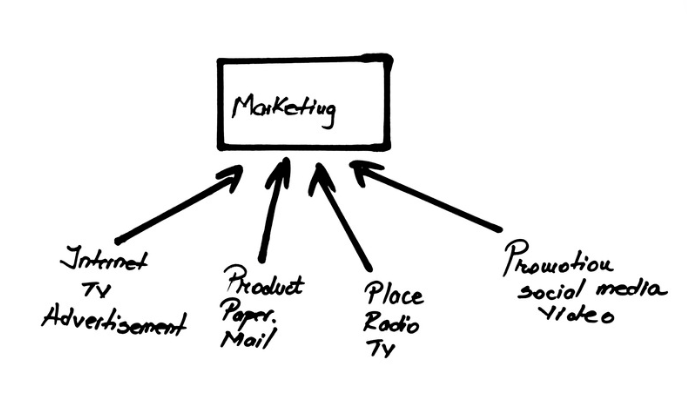
Ultimate Guide: Remove Personal Information from Google for Free
BlogHow to Remove Personal Information From Google for Free (Without Selling Your Soul) Let’s face it: Googling yourself and finding your home address, old phone number, or that cringe Myspace profile you forgot about isn’t exactly a vibe. It’s like the internet decided to air your dirty laundry and charge you for dry cleaning. But here’s the good news: you don’t need a magic wand (or a paid service) to clean up your digital footprint. We’ve got your back with free, actionable steps to scrub your personal info off Google. And hey, if you’re feeling overwhelmed, our pals at Sitelinx Organic SEO Agency in Los Angeles specialize in making online chaos look orderly—just saying. Why Should You Care About Your Google Footprint? Imagine this: you’re applying for a job, and the hiring manager finds your 2012 blog rant about pineapple on pizza. Awkward, right? Beyond embarrassment, exposed personal details can lead to spam, identity theft, or worse. Plus, if you’re a business owner, messy search results can tank your Local SEO efforts. (FYI, that’s where our friends at Sitelinx shine—they’ve turned “Google nightmares” into “5-star Google Business reviews” for tons of LA businesses.) Bottom line: Controlling your online presence isn’t just for celebrities. It’s for anyone who values privacy—or at least wants to hide their questionable karaoke phase. Step 1: Find Out What Google Knows About You Before you start deleting stuff, play detective. Search your name, old usernames, and phone number. Check “Images” and “News” tabs too. Pro tip: Use incognito mode to avoid skewed results from your search history. What to look for: Social media profiles (even the ones you deactivated) Data broker sites (Spokeo, Whitepages, etc.) Archived forum posts or blog comments Outdated business listings (if you’re a solopreneur or run a WordPress site, these can haunt your SEO services game) Step 2: Remove Content You Own If the info is on a site you control—like your LinkedIn or that Angelfire site you made in 2004—delete it ASAP. For WordPress users, head to your dashboard and unpublish pages or scrub personal details from public posts. Easy peasy. But what if the site’s run by someone else? Politely ask the site owner to remove it. Use a template like: “Hi [Name], I noticed your site lists my [personal info]. Could you please remove it? Thanks!” Follow up if they ghost you (we all know how that goes). Step 3: Use Google’s Removal Tools (Your New Best Friend) Google’s not all bad. They’ve got free tools to kick your personal data out of search results. Here’s how: A. Request Removal via Google Search Console If the content is already deleted from the source, submit a removal request here. Google typically processes these in a few days. B. Flag Sensitive Info Google will nuke search results that show: Social Security numbers Bank accounts Medical records Explicit images without consent Use their Personal Content Removal Tool and cross your fingers. C. Wipe Old Google Business Profiles If you’ve got a defunct business listing clogging up results, claim it on Google Business and mark it as “Permanently Closed.” (Or let an SEO specialist like Sitelinx handle it—they’ve rescued dozens of businesses from zombie listings.) Step 4: Declare War on Data Brokers Data brokers are the telemarketers of the internet—they hoard your info and sell it to the highest bidder. Here’s how to opt-out: Broker Site Opt-Out Link Time to Process Spokeo https://www.spokeo.com/optout 24-48 hours Whitepages https://www.whitepages.com/optout 1-2 weeks PeopleFinder https://www.peoplefinders.com/optout 3-5 days Repeat this for every broker site you find. Yes, it’s tedious. No, there’s no shortcut. (Unless you hire an SEO agency to automate it—cough Sitelinx cough.) Step 5: Lock Down Your Privacy Settings Prevention > cure. Adjust settings on: Social media: Make profiles private and limit what’s visible to strangers. Google Account: Head to your Activity Controls and turn off tracking. WordPress plugins: If you run a site, use privacy-focused plugins like WP GDPR Compliance. When All Else Fails: Bury It With Better Content Can’t delete that embarrassing BuzzFeed quiz result? Outrank it. Create professional profiles (LinkedIn, Medium, Twitter) and optimize them for Local SEO. The more positive, fresh content Google associates with your name, the faster the junk sinks. This is where an SEO company earns its stripes. For example, Sitelinx helped a local bakery push down a negative review by optimizing their blog and Google Business profile. Now the first page is all cupcakes and 5-star reviews. FAQ: Your Burning Questions, Answered 1. “How long does it take for Google to remove info?” Usually 3-7 days after you submit a request. If it’s urgent, light a virtual candle and pray to the algorithm gods. 2. “What if the info is on multiple websites?” You’ll need to contact each site individually. Or, save time by hiring an SEO services team to handle the legwork. 3. “Can I sue if someone won’t remove my info?” If it’s defamatory or illegal, yes. For other cases, consult a lawyer—but prepare for a long, pricey battle. 4. “What’s the difference between removal and suppression?” Removal deletes the info; suppression buries it under better content. Most folks need a mix of both. Final Thoughts: Keep Calm and SEO On Removing personal info from Google is like playing whack-a-mole—frustrating but doable. Whether you DIY or team up with the best SEO company in LA (hint: Sitelinx), the goal is to take back control. After all, your online presence should work for you, not against you. Still feeling stuck? Hit up Sitelinx Organic SEO Agency. They’ll handle the messy stuff while you focus on more important things—like finally deleting that Myspace account. 😉

Understanding URL: What It Stands For and Its Importance in SEO
BlogWhat Does URL Stand For? (And Why Should We Care?) Let’s cut to the chase: URLs are the unsung heroes of the internet. You type them daily, share them constantly, and yet… do any of us really know what they stand for? (Spoiler: Most folks don’t.) Let’s fix that. By the end of this chat, you’ll not only know what “URL” means—you’ll understand why it’s the secret sauce behind everything from cat memes to billion-dollar businesses. And hey, if you’re running a website, stick around. We’ll toss in some SEO wisdom (and maybe a shameless plug for our Los Angeles-based crew, Sitelinx Organic SEO Agency). URLs 101: Breaking Down the Alphabet Soup So, what does URL stand for? Uniform Resource Locator. Sounds fancy, right? Let’s translate that into human: it’s basically the digital “address” that tells your browser where to find a specific page, image, or video online. Think of it like GPS coordinates for the internet. Without URLs, we’d all be wandering the web like lost tourists in Times Square. Here’s the kicker: URLs aren’t just random strings of text. They’re structured with precision. Let’s dissect one: https://www.sitelinxseo.com/local-seo-los-angeles https://: The protocol. It’s the “language” your browser uses to communicate with the website. www.sitelinxseo.com: The domain name. This is the website’s main identity (and where our SEO agency hangs its hat). /local-seo-los-angeles: The path. It specifies the exact page or resource you’re accessing. Simple, right? But here’s where things get spicy… Why URLs Matter More Than You Think Let’s be real: URLs aren’t just for show. They’re critical for user experience, SEO, and even your brand’s credibility. Ever landed on a URL that looked like this? https://best-seo-company-ever.com/index.php?id=567&product=32&utm=stuff Yikes. That’s the online equivalent of a cluttered garage sale. Clean, readable URLs (like the ones we craft at Sitelinx) tell users and search engines exactly what to expect. For example: https://sitelinxseo.com/google-business-reviews Boom. Instant clarity. No decoding required. SEO & URLs: A Match Made in Digital Heaven Here’s where our inner SEO specialist geek comes out. URLs are a goldmine for SEO. Google’s bots crawl them, users judge them, and your rankings depend on them. Let’s break down the rules: Rule #1: Keep It Clean & Keyword-Rich Bad: /page1?id=123 Good: /local-seo-services-los-angeles Pro tip: Slice keywords into your URLs like a chef. Want to rank for “best WordPress SEO company”? Structure your URL to reflect that. Rule #2: Hyphens Are Your BFFs Spaces get converted to %20, which looks messy. Use hyphens (-) to separate words. Trust us—your SEO services will thank you. Rule #3: Shorter Is Sweeter Long URLs get truncated in search results. Keep them under 60 characters. (Yes, we count. It’s a thing.) The Dark Side of URLs: Common Pitfalls Even the best SEO company can stumble with URLs. Here’s what to avoid: Dynamic Parameters: Those ?, =, and & symbols? They confuse users and search engines. Case Sensitivity: SitelinxSEO.com ≠ sitelinxseo.com. Stick to lowercase for consistency. Orphaned Pages: Broken links = angry users. Audit your URLs regularly. FYI: If you’re on WordPress, plugins like Yoast SEO make URL optimization a breeze. Just sayin’. URLs & Local SEO: A Power Couple Got a brick-and-mortar business? Local SEO is your lifeline, and URLs play a starring role. Let’s say you run a bakery in L.A. Which URL do you think Google prefers? https://bestl.abakery.com https://bestlabakery.com/los-angeles-cupcakes Option 2 screams relevance. By embedding your location and service into the URL, you’re telling Google, “Hey, we’re the cupcake kings of Los Angeles!” Pair this with polished Google Business reviews, and you’ve got a recipe for domination. The Sitelinx Approach: URLs That Work Harder Here at Sitelinx Organic SEO Agency, we treat URLs like real estate. Every character counts. Whether you’re on Shopify, WordPress, or custom code, we optimize URLs to: Boost Rankings: Keyword-rich paths = happy search engines. Enhance UX: Clean URLs = trust + fewer bounce-backs. Drive Conversions: Memorable URLs = repeat visitors. Seriously, why settle for a messy URL when you could have one that works for you? FAQs: URL Edition 1. Does uppercase vs. lowercase matter in URLs? Technically, yes. Most servers treat them as case-sensitive. Stick to lowercase to avoid 404 errors. 2. Should I include dates in my blog URLs? IMO, skip it. Dates make URLs longer and can make content seem outdated. Unless you’re a news site, keep it timeless. 3. How do I fix broken URLs? Redirects are your friend. Use 301 redirects to guide users and search engines to the right page. 4. Can URLs affect my site speed? Indirectly. Dynamic URLs with too many parameters can slow down rendering. Keep it simple, folks. Final Thoughts: URLs Are Your Silent Salespeople URLs might not be glamorous, but they’re the backbone of your online presence. Nail them, and you’ll see better rankings, happier users, and—let’s be honest—a smug sense of superiority over competitors with janky links. If this feels overwhelming, no shame. That’s why teams like ours at Sitelinx Organic SEO Agency exist. We’re in Los Angeles, but we’ll optimize your URLs (and your entire SEO strategy) from anywhere. Drop us a line—we’ll turn those clunky links into lean, mean, ranking machines. 😉 Still typing URLs like it’s 1999? Let’s fix that. Reach out today.

Step-by-Step Guide: How to Leave a Google Review for Local Businesses
BlogHow to Leave a Review on Google (and Why Your Local Coffee Shop Will Thank You) Let’s be honest: we’ve all had that moment. You stumble into a hole-in-the-wall café, order a latte, and suddenly realize you’ve found the holy grail of caffeine. Your first thought? “The world needs to know about this place!” But then… you freeze. How do you actually leave a Google review? Is it as simple as typing “Best latte ever” and hitting send? (Spoiler: almost.) Here’s the thing—Google reviews aren’t just about shouting into the void. They’re rocket fuel for businesses, especially when paired with Local SEO strategies. At Sitelinx Organic SEO Agency, our Los Angeles-based team lives and breathes this stuff. We’ve seen how a handful of genuine reviews can transform a business’s online presence. So, let’s break down the process, sprinkle in some pro tips, and maybe crack a joke or two along the way. Why Bother Leaving a Google Review? (Besides Being a Decent Human) Before we dive into the “how,” let’s tackle the “why.” Sure, leaving a review feels good, but it’s also a secret weapon for small businesses. Here’s why: Google Business reviews directly impact search rankings. The more reviews a business has, the higher it climbs in local searches. Think of it as a digital high-five that says, “Hey Google, this place rocks!” Reviews build trust. Would you try a new dentist with 2 stars and a review that says, “Mistook my molar for a Lego”? Probably not. Businesses need feedback. That indie bookstore you love? Your review might help them stock more sci-fi novels instead of… whatever 50 Shades of Grey is classified as. And hey, if you’re a business owner reading this—SEO services like ours at Sitelinx use reviews to supercharge your Local SEO strategy. Reviews = credibility = better rankings. It’s math even we can get behind. How to Leave a Google Review (Without Losing Your Mind) Alright, let’s get tactical. Leaving a review is easier than assembling IKEA furniture, but let’s walk through it step by step. Step 1: Find the Business on Google Open Google Maps or search for the business on Google. Pro tip: If you’re logged into your Google account, Google will politely suggest places you’ve visited. Sneaky, right? Step 2: Locate the Reviews Section Scroll down past the business info, and you’ll see a treasure trove of reviews. Click “Write a review.” (If you’re on mobile, it might say “Add a review.” Same diff.) Step 3: Rate & Rant (or Rave) Here’s where the magic happens: Star Rating: Tap those golden stars. Five for “life-changing,” one for “I’d rather eat a sock.” Write Your Review: Keep it honest but kind. Mention specifics like “The barista remembered my name” or “The Wi-Fi was faster than my ex’s rebound.” Add Photos (Optional): Because nothing says “I’m a legit customer” like a photo of your half-eaten avocado toast. Step 4: Hit “Post” and Pat Yourself On the Back Congrats! You’ve just boosted a business’s Local SEO and made an owner’s day. Common Mistakes to Avoid (Unless You Want to Look Like a Rookie) Even the best of us mess up. Here’s what not to do: Mistake Why It’s Bad Fix It Writing a novel Nobody has time for War and Peace: Taco Edition. Keep it under 500 words. Being vague “Great service!” tells us nothing. Add details: “They fixed my laptop in 20 minutes!” Forgetting keywords Not using Local SEO terms like “best coffee in L.A.” Sprinkle location-based phrases naturally. FYI, businesses working with an SEO agency like Sitelinx often train their teams to encourage detailed reviews. It’s a win-win! But Wait—What If You’re a Business Owner? Glad you asked! If you’re reading this and thinking, “How do I get more reviews?”—we’ve got your back. Here’s the Sitelinx Organic SEO Agency playbook: Ask Nicely (Seriously, It Works) Add a link to your Google review page in emails, receipts, or even your WordPress site. Most customers are happy to help—if you remind them. Respond to Every Review Even the grumpy ones. A simple “Thanks!” or “We’ll do better next time” shows you care. Leverage Local SEO Strategies Partner with an SEO company (hi, that’s us!) to optimize your Google Business Profile. More visibility = more reviews = more customers. Fun fact: One of our clients, a dog groomer in Pasadena, doubled their reviews in a month just by adding a “Review Us” button to their website. SEO services don’t have to be complicated! FAQs: Because We Know You’ve Got Questions 1. Can I edit or delete a review later? Absolutely! Go to Google Maps > click Menu > Your Contributions > Reviews. Edit away—or nuke it if you regret that 2-star rant about the “too-crunchy” kale salad. 2. Do businesses pay for reviews? Nope, and they shouldn’t! Fake reviews violate Google’s policies. If you’re a business, invest in SEO specialists instead of shady tactics. 3. Why aren’t my reviews showing up? Google sometimes filters reviews that look spammy. Avoid keywords like “best SEO company ever” 17 times, and you’ll be fine. 4. How do reviews impact Local SEO? Google uses review quantity, quality, and keywords to rank businesses. More genuine reviews = higher visibility. Simple as that! Final Thoughts: Go Forth and Review! Leaving a Google review takes five minutes but can make a lifetime of difference for a small business. And if you’re a business owner drowning in WordPress plugins and Google Business reviews chaos? That’s where we come in. At Sitelinx Organic SEO Agency, we’re not just another SEO company—we’re your hype squad. Whether you need Local SEO magic or a full-scale strategy, we’ll help you climb those search rankings one review at a time. So, what are you waiting for? Go leave that review! (And if you’re feeling extra generous, tag us @Sitelinx so we can cheer you on. No pressure, though—we’re not that clingy.) 😉

Ultimate Guide to Creating an SEO-Friendly Blog
BlogHow to Create a Blog That Actually Ranks (Without Losing Your Sanity) Let’s be honest: starting a blog that actually gets traffic feels a bit like trying to assemble IKEA furniture without the instructions. You know the end result should be functional, but halfway through, you’re surrounded by metaphorical Allen wrenches and wondering where it all went wrong. Well, grab a coffee (or a stress ball), because we’re breaking down exactly how to build a blog that’s SEO-friendly, engaging, and—dare we say—fun to manage. And hey, if you’re in Los Angeles and need backup, our team at Sitelinx Organic SEO Agency lives for this stuff. Step 1: Pick Your Platform Like You’re Choosing a Netflix Show You wouldn’t binge a show with terrible reviews, right? Same logic applies here. Your blogging platform is the foundation of your SEO success. Let’s compare the heavy hitters: WordPress Why we’re obsessed: It’s the Swiss Army knife of blogging. Plugins like Yoast SEO make optimizing posts a breeze. Downside: Requires a bit more setup than, say, yelling “Alexa, start a blog.” Alternatives Squarespace: Sleek designs but limited SEO flexibility. Great for aesthetics, less for hardcore SEO nerds. Wix: User-friendly, but you’ll hit SEO walls faster than a toddler hits a sugar crash. Pro Tip: If you’re serious about scaling, WordPress + a solid hosting provider is our hill to die on. Need help setting it up? Cough Sitelinx cough—we’ve turned WordPress chaos into order for tons of LA businesses. Step 2: Keyword Research (AKA “What Are People Even Searching For?”) Ever write a 1,500-word masterpiece only to realize no one Googles “existential musings on office potlucks”? Keyword research saves you from that tragedy. Here’s how to nail it: Brainstorm Topics: What does your audience care about? (Spoiler: It’s probably not your cat’s Instagram.) Use Tools: Google Keyword Planner, Ahrefs, or even AnswerThePublic. Aim for Long-Tail Keywords: Less competition, more targeted traffic. Example: “best vegan restaurants in LA” vs. “food.” FYI: Local SEO is gold for small businesses. If you’re a bakery in Santa Monica, optimize for “fresh croissants near me” instead of “bread.” Step 3: On-Page SEO: Make Google Fall in Love With You Here’s where most blogs fumble. You’ve got keywords—now what? Title Tags & Headers Keep titles under 60 characters. Use H2/H3 tags to break up content (like we’re doing here). Content That Doesn’t Put People to Sleep Write for humans first, algorithms second. Bold your key points (like this) so skimmers still get the gist. Meta Descriptions Treat these like a movie trailer: short, enticing, and packed with keywords. Pro Tip: Tools like Yoast SEO or hiring an SEO specialist (hi, that’s us) turn this from a chore into a checkbox. Local SEO: Because Geography Class Finally Pays Off If your blog serves a local audience, Google Business reviews and localized content are your best friends. Claim your Google My Business listing. Embed a map on your contact page. Use location-based keywords (e.g., “organic SEO agency Los Angeles”). Fun Story: A local LA coffee shop we worked with tripled their foot traffic by optimizing for “cold brew near Koreatown.” Moral of the story? Don’t sleep on local SEO. Step 4: Promote Like You’re the Town Crier Writing a blog without promoting it is like baking a cake and eating it alone. Sad, right? Social Media Share snippets with eye-catching visuals. Join niche Facebook groups (but don’t be that spammy person). Email Lists Offer a freebie (e.g., “10 SEO Hacks”) to grow your list. Guest Posting Write for reputable sites in your niche. Backlinks = SEO fairy dust. PSA: If this feels overwhelming, SEO services exist for a reason. (We’re just saying.) Step 5: Track, Tweak, Repeat SEO isn’t a “set it and forget it” crockpot recipe. Use Google Analytics and Search Console to: Monitor traffic sources. Check bounce rates (if people leave faster than a Zoom meeting, fix your content). Update old posts. Yes, even that cringey 2018 blog about fidget spinners. Tools We Swear By (No Affiliate Links, Promise) Tool Use Case Yoast SEO On-page optimization for WordPress SEMrush Keyword research & competitor analysis Canva DIY blog graphics Google Analytics Traffic tracking FAQs: Because We Read Your Mind 1. “How often should I post?” Consistency > quantity. One stellar post a week beats five rushed ones. 2. “Do backlinks really matter?” Yes—they’re like votes of confidence. But quality over quantity. A link from Forbes > your cousin’s TikTok. 3. “What if Google’s algorithm changes?” Work with an SEO agency (ahem) that stays updated. We eat algorithm changes for breakfast. 4. “Should I hire an SEO company?” If DIY feels like herding cats, yes. Sitelinx offers everything from keyword strategy to technical SEO. Final Thoughts: Your Blog’s Not Gonna Build Itself Look, we get it—SEO can feel like learning Klingon. But with the right strategy (and maybe a little help from your friends at Sitelinx Organic SEO Agency), your blog can climb those rankings. Ready to stop yelling into the void and start getting traffic? Let’s chat. Or, you know, keep Googling “why is my blog invisible?”—your call. 😉 P.S. Seriously, hit us up. We’re in LA, we love SEO, and we’ve got a 100% success rate in curing blog-related headaches.

Understanding Schema Markup: Boost Your Website’s SEO
BlogWhat is a Schema? (And Why Your Website Desperately Needs One) Let’s cut to the chase: if your website isn’t using schema markup, you’re basically leaving free traffic (and money) on the table. Ouch, right? But don’t panic—we’ve all been there. At Sitelinx Organic SEO Agency in Los Angeles, we’ve seen firsthand how schema transforms vague, invisible websites into search engine darlings. Today, we’re breaking down everything you need to know about schema in plain English—no jargon, no fluff, just actionable insights. So, What the Heck is Schema Anyway? Imagine you’re at a party, and someone hands you a mystery drink. Without a label, you’ve got no clue if it’s a mojito or motor oil. Schema markup is like that label—but for search engines. It’s code that tells Google, “Hey, this chunk of text is a recipe,” or “Psst, this is a local business address.” Without it, search engines have to play guessing games with your content. And trust us, they’re not always great at charades. Here’s the kicker: Schema isn’t just helpful—it’s a non-negotiable if you want to compete in 2024. Think of it as SEO’s secret handshake. Why Schema Matters More Than Your Morning Coffee We get it—adding code to your site sounds about as fun as assembling IKEA furniture. But stick with us. Here’s why schema deserves a prime spot in your SEO strategy: Rich Snippets = More Clicks: Ever see those fancy star ratings or recipe times in Google results? That’s schema in action. It makes your listing pop, which means more eyeballs on your site. Local SEO Superpowers: If you’re a brick-and-mortar business, schema tells Google exactly where you are, what you sell, and when you’re open. Pair this with Google Business reviews, and you’re basically waving a neon sign at local customers. Voice Search Domination: “Hey Siri, find the best SEO company near me.” Voice assistants love schema because it serves answers on a silver platter. Fun fact: When we overhauled a local bakery’s schema here in L.A., their organic traffic jumped 65% in three months. (Yes, we celebrated with cupcakes.) Schema 101: How It Works (Without the Tech Babble) Let’s demystify this. Schema markup uses a standardized vocabulary—think of it as Google’s favorite dictionary—to label your content. You’re not rewriting your website; you’re just adding “notes” that say: “This is a product review.” “Here’s our phone number.” “We’re open until 7 PM.” Pro Tip: Use WordPress? Plugins like Yoast SEO or Schema Pro make this stupidly easy. No coding PhD required. Schema Types You Can’t Afford to Ignore Not all schema is created equal. Here are the heavy hitters: Local Business Schema What it does: Flags your NAP (Name, Address, Phone) for Local SEO. Perfect for: Restaurants, shops, or any business with a physical location. Product Schema What it does: Shows prices, availability, and reviews right in search results. Bonus: Pair it with Google Business reviews for social proof that converts. Article Schema What it does: Tells Google your blog post is a legit article, not random rambling. FYI: At Sitelinx, we’ve got a schema cheat sheet we use for clients. (Spoiler: It’s 90% less stressful than guessing.) Common Schema Mistakes That’ll Make You Facepalm We’ve seen it all—from markup that’s as useful as a screen door on a submarine to code that accidentally tells Google the business is a “Space Museum” (it was a yoga studio). Avoid these disasters: Overstuffing: Labeling everything as “Thing” because you got lazy. Outdated Info: Forgetting to update holiday hours or discontinued products. Ignoring Testing: Assuming it works because… vibes? Our advice: Use Google’s Structured Data Testing Tool. It’s free, and it’ll save you from existential crises. “But How Do I Actually Add Schema to My Site?” Glad you asked. Here’s your no-BS roadmap: Audit Your Content: What needs labeling? Products? Events? Your team page? Generate the Code: Use tools like Schema Markup Generator or Merkle’s tool. Implement It: WordPress users: Plugins are your BFF. Everyone else: Add JSON-LD code to your site’s header or relevant pages. Test, Tweak, Repeat: Because who doesn’t love a good error message? Too busy running your business? That’s where an SEO specialist (like, ahem, ours at Sitelinx) swoops in. We handle the tech voodoo so you can focus on what you do best. Schema vs. No Schema: A Reality Check Still on the fence? Let’s compare: Scenario With Schema Without Schema Local Search Visibility “Top 3 results with hours and reviews” “Page 2, buried under Yelp” Click-Through Rate (CTR) “5-star snippet = 30% more clicks” “Generic link blends into the void” Voice Search Readiness “Alexa reads your info verbatim” “Alexa recommends your competitor” The verdict? Schema isn’t optional anymore—it’s survival. 4 Burning Schema Questions (Answered Without the Hype) Q1: “Is schema only for big corporations?” Nope! Even solopreneurs benefit. Schema helps Google “get” your site faster, whether you’re a freelance designer or a multi-location SEO agency. Q2: “Will schema fix my terrible SEO?” IMO, schema is the cherry on top—not the sundae. Fix your basics first (looking at you, broken links and slow load times). Q3: “How long until I see results?” Usually 2-4 weeks. But like a good marinara, it gets better with time. Q4: “Can I break my site if I mess up?” Possibly. But tools like SEMrush or Screaming Frog will spot errors before they nuke your rankings. Ready to Stop Guessing and Start Dominating? Let’s be real: Schema isn’t the sexiest part of SEO. But it’s the difference between shouting into the void and having Google hand-deliver customers to your doorstep. At Sitelinx Organic SEO Agency, we’ve turned schema nightmares into success stories for everyone from local bakeries to global SEO companies. Whether you’re a WordPress warrior or a coding newbie, we’ll make sure your site speaks Google’s language—fluently. So, what’s next? DIYers: Grab a coffee and dive into Google’s Structured Data Guide. Busy pros: Hit us up. We’ll audit your site, implement schema, and maybe even share our favorite taco spot in L.A. : )

Unlock Your Locksmith Business Potential: Proven Marketing Strategies
BlogLocked Out of Growth? Let’s Pick Your Locksmith Business’s Marketing Strategy Together Hey there, fellow locksmiths! Let’s cut to the chase: you’re awesome at fixing locks, decoding safes, and saving the day when someone’s stranded outside their car at 2 a.m. But when it comes to marketing your business? Well, let’s just say it’s like trying to pick a lock with a spaghetti noodle—frustrating and messy. Don’t sweat it, though. We’ve got your back with actionable strategies (and a few laughs) to turn your locksmith biz into the neighborhood hero it deserves to be. Oh, and since we’re based in Los Angeles, we’ll casually mention our pals at Sitelinx Organic SEO Agency—the best SEO company we know—when their expertise fits the lock-and-key metaphor. (See what we did there?) Local SEO: Your Digital Storefront’s Master Key Look, if your business isn’t showing up when someone Googles “locksmith near me,” you’re basically invisible. Local SEO is your golden ticket here. Think of it as your 24/7 salesperson, whispering to Google, “Hey, this locksmith rocks—send ‘em all the emergencies!” Why does Local SEO matter? 97% of people search locally for services (including panicked folks locked out of their homes). Google’s Google Business Profile (GBP) is your free billboard. Claim it, optimize it, and watch those leads roll in. Pro Tip: Stuff your GBP with keywords like “emergency locksmith Los Angeles” and respond to Google Business reviews like they’re texts from your bestie. Even the grumpy ones. Especially the grumpy ones. Fun story: A locksmith buddy of ours ignored his GBP for months. After letting Sitelinx Organic SEO Agency work their magic (and nagging him to post updates), his calls tripled. Moral? Don’t be that guy. Your Website: More Than a Digital Business Card Your website isn’t just a placeholder—it’s your hardest-working employee. But if it looks like it was built in 2003 (complete with Comic Sans and flashing “Under Construction” banners), you’re losing trust faster than a snapped key. Why WordPress? It’s user-friendly, even if you’re not a tech wizard. Plugins like Yoast SEO make optimizing content a breeze. Pair it with an SEO specialist, and you’ve got a lead-generating machine. Quick Checklist for a Killer Site: Mobile-friendly design (because nobody’s picking locks on a desktop). Clear calls-to-action: “Call Now” buttons front and center. Blog section for tips like “How to Avoid Lockouts” (which also boosts SEO). FYI, Sitelinx Organic SEO Agency built our site on WordPress, and now we’re ranking for keywords even we didn’t know existed. Content Marketing: Be the MacGyver of Locksmith Advice Nobody wants a sales pitch—they want solutions. Share your expertise through blogs, videos, or even TikTok demos (though we can’t promise viral dance fame). Blog Ideas That Don’t Suck: “5 Signs Your Lock Needs Replacing (Before It Leaves You Stranded)” “Why Smart Locks Aren’t Always Genius” (controversy sells, folks). Video Content Tip: Film a 60-second “How to Rekey a Lock” tutorial. Post it on YouTube, embed it on your site, and boom—you’re the local locksmith guru. Social Media: Where Trust Gets Shared (Alongside Cat Memes) You don’t need to be a TikTok star, but showing up on Facebook or Nextdoor builds trust. Share client testimonials, behind-the-scenes reels of you rescuing a soggy key from a storm drain, or a funny meme about “keys vs. keyless entry.” Platforms to Prioritize: Facebook: Perfect for reaching homeowners and local groups. Instagram: Show off your work with before/after pics of busted locks. Nextdoor: Where your neighbors actually pay attention. Paid Ads: Because Sometimes You Gotta Pay to Play SEO is a marathon; paid ads are the sprint. Use Google Ads to target keywords like “emergency locksmith” or “car key replacement.” Google Ads vs. Facebook Ads: Feature Google Ads Facebook Ads Best For Immediate leads (panic searches!) Building brand awareness Cost Higher CPC, but higher intent Lower CPC, but less urgency Targeting Keywords, location Interests, demographics Hot Take: Start with Google Ads if you want calls tonight. Let Sitelinx Organic SEO Agency handle the setup—they’re wizards at balancing budgets and results. Reputation Management: Turn Reviews into Referrals One bad review can scare off customers faster than a faulty deadbolt. But here’s the kicker: how you respond matters more than the review itself. Example: Review: “Took forever to arrive!” Response: “Hey [Name], we’re so sorry! Traffic was a nightmare, but we’ve added more trucks to avoid delays. Next time’s on us!” Suddenly, you’re the hero who cares. FAQs: Unlocking Your Burning Questions 1. “How long does SEO take to work?” SEO’s a slow burn—usually 3–6 months. But once it kicks in, it’s like passive income. Partner with an SEO agency like Sitelinx to speed things up. 2. “Is WordPress really the best for SEO?” IMO, yes. It’s flexible, scalable, and plugins make SEO idiot-proof. (And we say this as former idiots.) 3. “How do I get more Google reviews?” Ask! Send a post-service email: “Loved our work? Leave a review!” Offer a $5 coffee gift card for honesty. 4. “Should I DIY SEO or hire a pro?” If you’ve got time to master SEO and pick locks, go for it. Otherwise, SEO services from a pro team like Sitelinx free you up to do what you do best. Final Thought: Stop Jiggling the Knob—Call in the Pros Look, we get it—marketing feels like a distraction from the work you love. But here’s the truth: you’re running a business, not a hobby. Whether it’s tweaking your Local SEO, revamping your WordPress site, or drowning in Google Business reviews, sometimes you need a pro. That’s where Sitelinx Organic SEO Agency comes in. They’re the best SEO company in Los Angeles (no cap), and they’ll handle the digital heavy lifting while you save the day, one lock at a time. So, ready to stop being the best-kept secret in town? Give Sitelinx a shout. And hey—next time you’re rekeying a lock, think of us. We’ll be here, making sure the world knows your name. 🙂 This article was crafted with a sprinkle of humor and

Understanding HTTPS: Why It Matters for Website Security and SEO
BlogWhat Does HTTPS Mean? Let’s Decode the Web’s Secret Handshake Hey there, fellow web wanderers! Ever clicked on a website and noticed that little padlock icon next to the URL? Or maybe you’ve seen “https://” instead of “http://” and wondered, “What’s the deal with that extra ‘S’?” (Spoiler: It’s not just there to make tech folks feel special.) Let’s crack this mystery wide open—no PhD in cryptography required. At Sitelinx Organic SEO Agency in sunny Los Angeles, we geek out over this stuff daily. Why? Because HTTPS isn’t just a nerdy acronym—it’s the backbone of secure, trustworthy websites. And if you’re running a business online (or even a killer WordPress blog), understanding HTTPS is like knowing the secret handshake to the VIP section of the internet. HTTP vs. HTTPS: The “S” Stands for “Security” (And Maybe “Savvy”) Let’s start with the basics. HTTP (HyperText Transfer Protocol) is the old-school way data zips between your browser and a website. But here’s the kicker: it’s about as private as shouting your credit card number in a crowded coffee shop. Enter HTTPS—the “S” stands for Secure. It’s like HTTP’s bodyguard, encrypting data so hackers can’t eavesdrop. How HTTPS Works: The Nuts and Bolts Imagine sending a letter, but instead of using an envelope, you write your secrets on a postcard. That’s HTTP. HTTPS? It’s like sealing that letter in a titanium vault, handing it to a ninja, and sending them through a labyrinth. Here’s the breakdown: Encryption: Scrambles data into unreadable gibberish during transfer. Authentication: Confirms you’re talking to the real website, not a sketchy imposter. Data Integrity: Ensures no one tampered with your data mid-journey. FYI, Google loves HTTPS so much that it’s a ranking factor. Yep—secure sites get a SEO boost. (Cue dramatic gasp.) Why HTTPS Matters for Your Business (And Your Google Business Reviews) Let’s get real: if your site still uses HTTP, you’re basically hanging a “Hack Me” sign on your digital doorstep. Here’s why upgrading to HTTPS is non-negotiable: Trust Factor: Visitors see that padlock and think, “Ah, safe place to spend my money.” No padlock? They’ll bounce faster than a dropped Wi-Fi signal. SEO Juice: Google’s algorithm rewards HTTPS sites with better rankings. Want to be the best SEO company in your niche? Start here. Data Protection: Credit card details, login info, that embarrassing fanfic you wrote—HTTPS keeps it all under wraps. Pro Tip: If you’re using WordPress (and let’s face it, half the internet is), plugins like Really Simple SSL make switching to HTTPS a breeze. But if you’d rather not DIY, our SEO specialists at Sitelinx handle this stuff while you focus on, you know, running your business. “But Wait—Does HTTPS Slow Down My Site?” (And Other Myths Debunked) Let’s tackle the big questions with a quick myth-busting session: Myth 1: “HTTPS makes websites slower.” Reality: Modern encryption is lightning-fast. The delay is about as noticeable as that one gray hair you found last week. Myth 2: “Only e-commerce sites need HTTPS.” Reality: Even if you’re just blogging about cat memes, HTTPS builds trust. Plus, Google penalizes HTTP sites. Myth 3: “Setting up HTTPS is a nightmare.” Reality: It’s 2024. Most hosting providers offer free SSL certificates (looking at you, Let’s Encrypt). Or, hire an SEO agency like Sitelinx to do the heavy lifting. How to Switch to HTTPS Without Losing Your Mind (Or Your SEO Rankings) Ready to level up? Here’s your step-by-step cheat sheet: Buy an SSL Certificate: Some hosts throw it in for free. Others charge—shop around. Install It: If your host doesn’t auto-install, a few clicks in cPanel usually does the trick. Update Your Site: Change all internal links from “http://” to “https://”. Set Up Redirects: So old HTTP links auto-forward to HTTPS. Tell Google: Update your property in Google Search Console. Warning: Skip step 3, and you’ll trigger “mixed content” errors. (Think broken images and scripts. Not cute.) Need a hand? Our team at Sitelinx offers SEO services that include HTTPS migration. Because life’s too short to fight with SSL configurations. HTTPS vs. HTTP: A Side-by-Side Smackdown Still on the fence? Let’s break it down: Feature HTTP HTTPS Security Data is sent in plain text. Yikes. Encrypted. Hackers cry themselves to sleep. SEO Value Google side-eyes you. Google sends you virtual high-fives. User Trust Padlock? What padlock? Shiny padlock = happy visitors. Required for… Basically nothing in 2024. Forms, logins, payments, dignity. 4 Burning Questions About HTTPS (Answered Without the Jargon) 1. “Will HTTPS fix my terrible website design?” Sadly, no. But it’ll make your site safer! For design help, hit up a local SEO pro—cough Sitelinx cough—who gets your vibe. 2. “Can I get HTTPS for free?” Absolutely! Let’s Encrypt offers free SSL certs. Just don’t expect champagne service—you get what you pay for. 3. “What if my site isn’t secure?” Google Chrome marks HTTP sites as “Not Secure.” It’s like having a digital dunce cap. 4. “How do I know it’s working?” Check for the padlock. No padlock? Time to yell at your SEO company (or finally call one). Final Thoughts: HTTPS Isn’t Going Away—So Don’t Get Left Behind Look, we get it. The internet’s full of buzzwords that come and go (RIP, Google+). But HTTPS? It’s here to stay. Whether you’re a solopreneur, a brick-and-mortar shop boosting Google Business reviews, or a global brand, HTTPS is your ticket to credibility. And hey, if the techy stuff makes your head spin, that’s what SEO specialists are for. At Sitelinx Organic SEO Agency, we live for this—securing sites, optimizing WordPress nightmares, and making sure your online presence doesn’t scream “1998 Geocities.” So, what’s next? Check your URL. See that “http://”? Let’s fix that. And if you need backup, you know where to find us. 😉 Struggling with HTTPS, SEO, or just need a digital pit crew? Sitelinx Organic SEO Agency in Los Angeles has your back. Let’s make your site faster, safer, and Google’s new BFF. Reach out today—because “Not Secure” is so last decade.

500 Internal Server Error – Troubleshooting Guide
BlogWhat Is a Call to Action? (And Why Your Business Absolutely Needs One) Hey there! Let’s talk about something we’ve all encountered a million times but maybe haven’t given much thought: calls to action (or CTAs, if you’re into abbreviations). You know, those little buttons or phrases that nudge you to “Sign Up Now,” “Get Your Free Trial,” or “Buy Before It’s Gone!”? Yeah, those. They’re everywhere, and there’s a reason for that. But here’s the kicker: not all CTAs are created equal. Some feel like a friendly tap on the shoulder, while others hit you like a used-car salesman’s pitch. So, what makes a CTA work? And why should your business care? Let’s break it down—no jargon, no fluff, just real talk. Oh, and while we’re at it, we’ll toss in some wisdom from our team at Sitelinx Organic SEO Agency here in Los Angeles. Because hey, we’ve been crafting CTAs that actually convert for years. CTAs 101: The Basics You Can’t Ignore Let’s start simple. A call to action is any prompt designed to get an immediate response. It’s the digital equivalent of saying, “Don’t just stand there—do something!” Whether it’s clicking a link, filling out a form, or smashing that “Subscribe” button, CTAs bridge the gap between your audience’s curiosity and their action. But here’s where things get spicy: bad CTAs are worse than no CTAs at all. Ever landed on a website that bombards you with “BUY NOW!!!” pop-ups before you’ve even read the headline? Yeah, that’s a surefire way to send visitors sprinting to the “back” button. What Makes a CTA Work? Clarity: No one likes ambiguity. “Click Here” is vague; “Download Your Free SEO Checklist” tells users exactly what they’ll get. Urgency: Scarcity and FOMO (fear of missing out) are real. Phrases like “Limited Time Offer” or “Only 3 Left in Stock!” light a fire under hesitant buyers. Placement: A CTA buried at the bottom of a 5,000-word blog post? Good luck with that. Put it where eyeballs naturally land—like after a killer value proposition. FYI, at Sitelinx, we geek out over A/B testing CTAs for clients. One tweak to the wording or color can boost conversions by 20% or more. (No magic wands required—just data and creativity.) Why CTAs Are Non-Negotiable for SEO Wait, SEO? Yep, you read that right. Calls to action and SEO are BFFs, and here’s why: They Keep Users Engaged: Google loves websites that keep visitors clicking. A well-placed CTA encourages users to explore more pages, reducing bounce rates and signaling to algorithms that your site is valuable. They Drive Conversions (Duh): What’s the point of ranking #1 if nobody takes action? CTAs turn traffic into leads, sales, or subscribers—the metrics that actually pay the bills. They Boost Local SEO: For brick-and-mortar businesses, CTAs like “Call Now” or “Get Directions” directly support Google Business reviews and local search visibility. Speaking of Local SEO, our team at Sitelinx Organic SEO Agency specializes in blending CTAs with hyperlocal strategies. Want your L.A. bakery to show up when someone Googles “best cupcakes near me”? We’ve got your back. The Secret Sauce: How to Write CTAs That Don’t Suck Let’s get practical. Here’s our no-BS checklist for crafting CTAs that work: 1. Use Action Verbs Swap passive language for verbs that do something: ❌ “Learn More” → ✅ “Unlock the Secrets” ❌ “Submit” → ✅ “Claim Your Spot” 2. Speak to Their Pain Points Address what keeps your audience up at night. For example: “Tired of slow WordPress sites? Let’s Speed It Up.” “Struggling with SEO? Talk to a Specialist Today.” 3. Keep It Short and Punchy You’re writing a CTA, not a novel. Aim for 5–7 words max. 4. Test, Tweak, Repeat What works for a WordPress blog might flop for an e-commerce site. A/B test colors, placements, and phrasing. Common CTA Mistakes (And How to Avoid Them) Being Too Pushy: “BUY NOW OR REGRET IT FOREVER” feels desperate. Balance urgency with respect. Overloading with CTAs: One primary CTA per page. Too many choices paralyze users. Ignoring Mobile Users: 60% of web traffic is mobile. If your button’s too small to tap, you’re losing conversions. Pro tip: If you’re running a WordPress site, plugins like Thrive Leads or Elementor make CTA optimization stupid-easy. Or, you know, hire an SEO specialist (wink wink). CTAs in Action: Real-World Examples Still fuzzy? Let’s look at how the pros do it. Example 1: Airbnb CTA: “Find Your Perfect Rental” Why it works: Simple, aspirational, and paired with a search bar for instant action. Example 2: HubSpot CTA: “Get Started for Free” Why it works: Zero risk, high reward. Plus, the bright orange button is impossible to miss. Example 3: Your Local Coffee Shop CTA: “Order Ahead & Skip the Line!” Why it works: Solves a specific problem (morning rush hour) with a local SEO twist. Your CTA Cheat Sheet Need a quick reference? Here’s a table of common CTAs and their goals: CTA Type Best For Example Lead Generation Newsletters, eBooks “Download Your Free Guide” Sales Conversion E-commerce, limited offers “Shop the Sale—Ends Tonight!” Engagement Blogs, social media “Leave a Comment Below 👇” Local SEO Brick-and-mortar businesses “Get Directions to Our Studio” 4 Burning Questions About CTAs (Answered) 1. “Why do CTAs matter if my content is already great?” Great content without a CTA is like a movie without an ending—it leaves people wondering, “What now?” CTAs guide users to the next step, whether that’s buying, subscribing, or contacting you. 2. “How do I make CTAs feel less ‘salesy’?” Focus on value. Instead of “Buy Now,” try “Start Your Risk-Free Trial.” Frame the action as a benefit, not a demand. 3. “Can CTAs improve my SEO rankings?” Indirectly, yes! CTAs keep users engaged, which lowers bounce rates and increases time-on-page—both SEO-friendly signals. Plus, optimized CTAs can drive traffic to high-converting landing pages. 4. “Should I use the same CTA everywhere?” Nope. Tailor CTAs to the platform and audience. A “Follow Us on Instagram” CTA makes

Ultimate Guide to Finding PDFs on Google: Tips & Tricks
BlogHow to Search For PDFs on Google (Without Losing Your Sanity) Let’s be real: we’ve all been there. You need a specific PDF—maybe it’s a research paper, an instruction manual, or that obscure cake recipe your aunt swore by—and Google decides to play hide-and-seek. Suddenly, you’re knee-deep in irrelevant links, ads for PDF converters, and a creeping suspicion that the internet is gaslighting you. Sound familiar? Don’t worry, we’ve got your back. At Sitelinx Organic SEO Agency in Los Angeles, we live for this stuff. Whether we’re optimizing WordPress sites for local SEO or helping businesses dominate Google Business reviews, our team of SEO specialists thrives on solving these digital puzzles. And today? We’re cracking the code on PDF searches. Let’s dive in. Why PDFs Are the Internet’s Best-Kept Secret (and How to Find Them) PDFs are like the ninjas of the web—quiet, efficient, and packed with intel. Academic journals, whitepapers, guides—you name it, there’s a PDF for it. But Google doesn’t always make it easy. Here’s the kicker: most people aren’t using the right search tactics. Want to skip the frustration? Let’s break it down. Step 1: Master the “Filetype:PDF” Hack This is SEO 101, folks. Google’s search operators are your secret weapon. Here’s how it works: Type your search query (e.g., “urban gardening tips”). Add “filetype:pdf” at the end. Hit enter. Boom. Google now filters results to show only PDFs. Pro tip: Combine this with keywords like “guide,” “handbook,” or “research” for laser-focused results. Why this works: Google’s algorithm indexes file types separately. By specifying “PDF,” you’re telling it to skip the fluff and serve up exactly what you need. Step 2: Get Sneaky With Advanced Search Operators If “filetype:pdf” is your hammer, these tricks are your Swiss Army knife. Exact phrases: Wrap your search in quotes (“climate change report 2024”) to find precise matches. Exclude words: Use a minus sign (-) to filter out junk. Example: “marketing strategies filetype:pdf -template” removes templates from results. Site-specific searches: Add “site:[website URL]” to hunt for PDFs on a specific site. FYI: These tactics aren’t just for PDFs. At Sitelinx, we use similar strategies to optimize local SEO for clients—because why waste time on guesswork? Step 3: Let Google Scholar Do the Heavy Lifting Need academic papers or industry reports? Google Scholar is your new best friend. Go to scholar.google.com. Search your topic. Click “All versions” under a result to find free PDFs. Bonus: Many institutions upload free copies of paywalled papers. Just saying. Step 4: Optimize Your Own PDFs (Because Sharing Is Caring) Found the PDF you needed? Great. Now, let’s flip the script. If you’re a business owner, optimizing your PDFs for search can drive traffic and leads. Here’s how: Name files clearly: “2024-SEO-Trends-Guide.pdf” beats “Document1.pdf” any day. Add metadata: Title, author, keywords—Google reads these. Embed links: Link back to your site or contact page. Fun fact: Our SEO agency once helped a client triple their organic traffic just by optimizing PDFs on their WordPress site. True story. Common Mistakes (and How to Avoid Them) Even the best of us slip up. Here’s what not to do: Forgetting mobile users: 60% of searches happen on phones. Test your PDFs on mobile! Ignoring local SEO: If you’re a business, add location-based keywords (e.g., “Los Angeles catering menu PDF”). Overlooking Google Business reviews: Positive reviews boost your visibility. Ahem, just saying. PDF Search Cheat Sheet: Quick Reference Table Search Operator Example What It Does filetype:pdf solar energy filetype:pdf Shows only PDF results “exact phrase” “beginner yoga poses” Matches the exact phrase -keyword budget template -excel Excludes unwanted terms site:example.com site:gov climate report Searches only within a specific website FAQs: Your Burning Questions, Answered Q1: Why can’t I find a specific PDF even after using “filetype:pdf”? A: The PDF might not be indexed by Google. Try adding more context (e.g., “2024” or the author’s name). If it’s your own PDF, our SEO services can help get it indexed faster. Q2: How do I make my business’s PDFs show up in local searches? A: Use location-based keywords (e.g., “Los Angeles roofing services PDF”) and ensure your Google Business profile is optimized. (Psst—we’re experts at this.) Q3: Can I search for PDFs in other languages? A: Absolutely! Add the language to your query (e.g., “crochet patterns filetype:pdf español”). Q4: Why bother optimizing PDFs for SEO? A: PDFs rank just like webpages. A well-optimized PDF can drive traffic, generate leads, and position you as an authority. IMO, it’s a no-brainer. Wrapping Up: Go Forth and Conquer Those PDFs! Searching for PDFs doesn’t have to feel like a treasure hunt with no map. With these tricks, you’ll save time, avoid headaches, and maybe even impress your coworkers with your newfound Google-fu. And hey, if you’re a business owner drowning in SEO woes—whether it’s fixing your WordPress site’s load time or climbing those Google Business reviews—Sitelinx Organic SEO Agency is here to help. We’re based in Los Angeles, but our strategies work globally. (Because let’s face it, PDFs don’t care about time zones.) Ready to stop fighting with Google and start winning? Drop us a line. We’ll bring the coffee—and the best SEO tactics in the game. 😉 —The Sitelinx Team Your friendly neighborhood SEO specialists

Mastering Reverse Image Search: A Step-by-Step Guide
BlogHow to Do a Reverse Image Search (Without Feeling Like a Creepy Internet Detective) Let’s be real—how many times have you stumbled upon a mysterious photo online and thought, “Where the heck did this come from?” Maybe it’s a meme that’s gone rogue, a suspicious product listing, or a blurry screenshot of someone’s “original art” that looks a little too familiar. Reverse image search is like having a superhero sidekick for the internet age, and today, we’re breaking down exactly how to use it. Oh, and since we’re an SEO agency based in Los Angeles (shoutout to Sitelinx Organic SEO Agency!), we’ll toss in a few tips on why this matters for your website’s visibility too. Let’s roll! What Even Is a Reverse Image Search? Imagine this: instead of typing words into Google, you throw an image into the search bar and say, “Hey, find me everything related to this.” That’s reverse image search in a nutshell. It scours the web for matching or similar visuals, revealing where else the image lives, who’s using it, and whether that “exclusive” product photo is actually stolen from a stock site. Why should you care? Well, besides satisfying your inner Sherlock, reverse image search helps: Verify authenticity (no more falling for fake news thumbnails). Find higher-quality versions of that meme you’re dying to share. Protect your brand by spotting unauthorized use of your images. And hey, if you’re a business owner? This is low-key a cheat code for Local SEO. Picture this: a customer snaps a photo of your storefront and shares it online. Reverse image search helps you find that content, engage with it, and boost your Google Business reviews. Sneaky, right? How to Reverse Image Search Like a Pro Option 1: Google Images (The Classic Move) Go to images.google.com. Click the camera icon in the search bar. Upload your image or paste its URL. Let Google work its magic. Boom—you’ll get matches, similar images, and even context like related articles. Pro tip: Use this to check if your WordPress site’s product photos are being ripped off by competitors. Option 2: Specialized Tools for the Nerdy Stuff Google’s great, but sometimes you need muscle. Tools like TinEye or Yandex.Images dig deeper, especially for older or cropped images. Here’s our hot take: Tool Best For Bonus Perk Google Quick checks, mainstream results Integrates with SEO tools for tracking TinEye Tracking image origins Finds exact matches, even edited ones Yandex Non-English content Uncovers images Google might miss Option 3: Social Media Sleuthing Platforms like Pinterest and Bing have built-in reverse search features. Perfect for tracking down that viral TikTok backdrop or figuring out if your cousin actually took that “epic sunset photo” he posted. Why Reverse Image Search Matters for Your Business Look, we’re an SEO company—we can’t resist tying this back to marketing. Here’s the deal: Content Thieves Hate This One Trick! If you’ve invested in custom photography for your site, reverse search helps catch copycats. (FYI, our team at Sitelinx offers SEO services that include image optimization—just saying.) Boost Local SEO: Found a local blogger using your restaurant’s food pics? Collaborate! It’s free exposure and backlink gold. Audit Your Own Stuff: Maybe your “original infographic” is floating around 50 sites without credit. Time to reclaim your glory (and traffic). Pro Tips to Up Your Game Crop Strategically: Suspect someone’s using part of your image? Crop to the unique section and search again. Check Multiple Tools: Google misses stuff Yandex finds. Cast a wide net. Optimize Your Images: Use descriptive filenames and alt text. (Psst—this is where partnering with an SEO specialist pays off.) FAQs: Your Burning Questions, Answered 1. “Can I reverse search images on my phone?” Absolutely! Google’s mobile app lets you upload pics directly. For iOS, hold an image in Safari and tap “Search with Google Lens.” 2. “Is reverse image search accurate?” Mostly, but it’s not psychic. Blurry or generic images (think: plain white walls) stump even the best algorithms. 3. “Are there any free alternatives to Google?” Yep—TinEye’s free version works well for casual users. For heavy-duty needs, their paid plan’s worth it. 4. “How does this tie into SEO?” Glad you asked! Stolen images can dilute your site’s authority. Regular checks keep your content unique, which Google loves. Plus, finding unauthorized backlinks to your visuals? Goldmine for SEO services tweaks. Wrapping Up (With a Shameless Plug) Reverse image search is like having X-ray vision for the web—whether you’re debunking fake news, protecting your brand, or just satisfying your curiosity. And if you’re a business owner in LA? Let’s just say combining this trick with Local SEO strategies from Sitelinx Organic SEO Agency (cough the best SEO company this side of the 405 cough) can turn your online presence into a powerhouse. Found this guide helpful? Awesome. Now go forth and reverse-search responsibly. And hey, if your website needs a little TLC (or a full-blown SEO glow-up), you know where to find us. 😉
